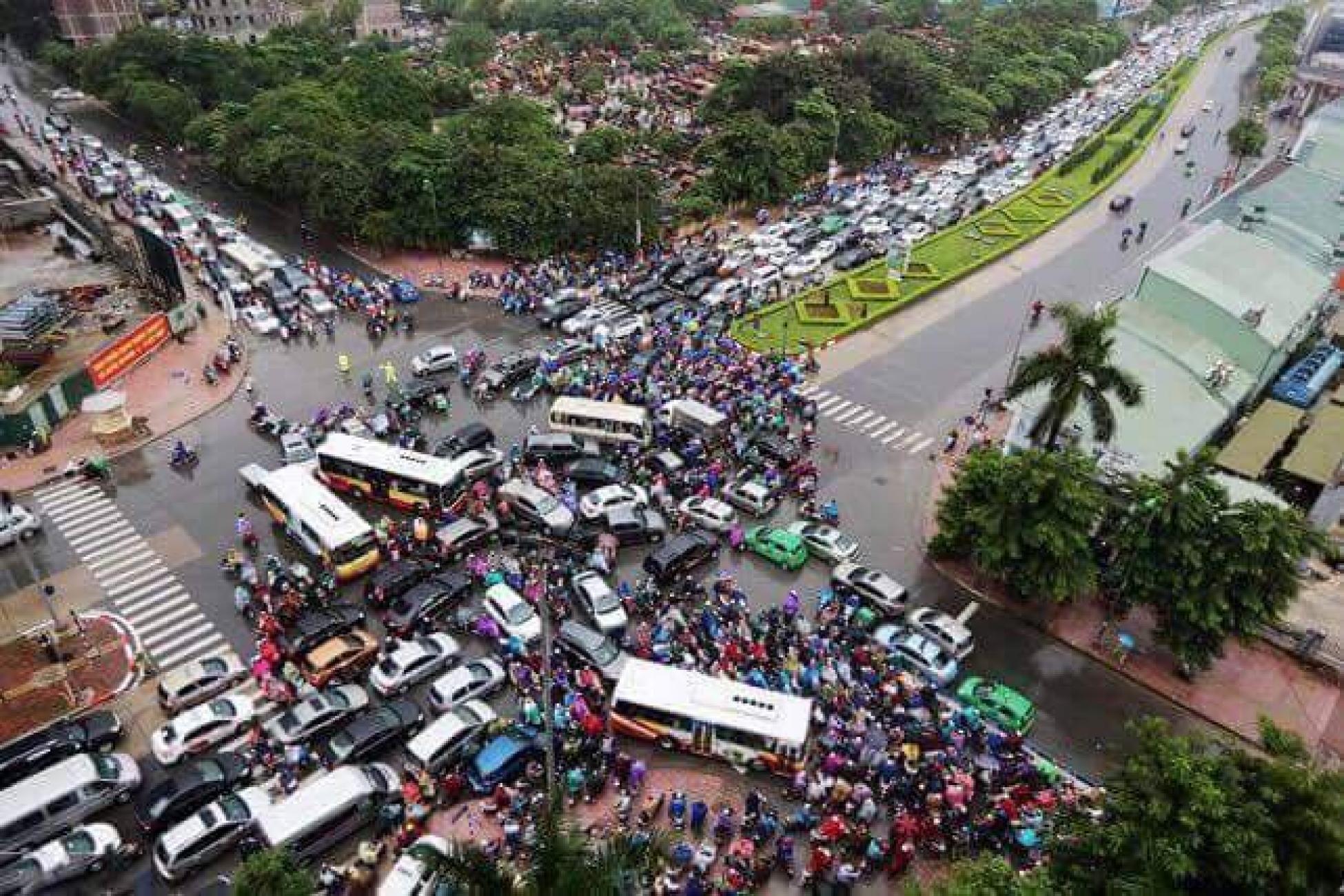Have you ever seen someone driving the wrong way down the fast lane of a highway? If you answered "yes," there's a distinct chance you have experienced the insanity that is driving in Vietnam.
Although Vietnam's been beaten to the crown of most dangerous country in the world to drive, it still sits high up the table. Daily encounters with dangerous, unpredictable and downright ridiculous driving can leave you a nervous wreck. It's not just driving that you have to consider, as there whole process of buying/renting and maintaining a vehicle that can easily leave you more confused than trying to navigate an intersection during rush hour.
For me, walking isn't an option, with the daily life of a teacher often requiring working a few locations several kilometres apart. Like many teachers, I opted to get a motorbike. If you're considering the same, you've likely got some questions. Read this, and the only thing left to worry about will be the process of driving itself.
Sound dangerous. Any tips for driving? Mirror, signal, maneuver?
Not exactly. One thing that struck me in Hanoi is that most bikes don't have mirrors. I realized pretty soon that taking up as little space as possible makes real sense. Several people I’ve spoken to use the analogy of the river, as large volumes of traffic flow down the road, speeding up and slowing as the traffic numbers ebb and flow.
Of course, be aware of what’s going on around you, but the first rule of driving in Hanoi seems to be make be aware of what's in your line of vision, and trust everyone else is doing the same. It's surprisingly effective, if a little terrifying.
So are accidents common?
They're not uncommon. I’ve seen a couple of bad ones. Buy a helmet that fits your head and won't pop off as soon as you fall.
I feel I might give it a miss. What are my alternatives?
Actually not too bad. Hanoi, and Ho Chi Minh are stocked with taxis. The use of UBER, and local alternative GRAB has really revolutionized the market: a fixed, universal price is very helpful, with GPS tracking and a review system of drivers to keep everything seamless. Using a motorbike taxi is cheap and quick, a few kilometres will cost around 1 USD.
The main drawbacks are a lack of reliability. Drivers often cancel or turn up late. It’s made me late for work before. Safety is an issue, too. It must be remembered these are part-time and untrained locals, often with little experience of the roads and an incentive to drive quickly. Cars are more expensive and and go slower, largely because they have to due to large quantity of traffic. It does make them safer though
Is it hard to rent a motorbike?
Just about anything you could want or need can be found online, as Hanoi for foreigners can essentially be boiled down to navigating one of several Facebook pages. Motorbikes are no different and that’s how I found mine.. A trip to Tay Ho or the old quarter will provide you with options that aren't online, but with a usually informed and always opinionated community there's more guarantees if choosing from an online supplier.
Prices vary according to supplier and bike, but for an average vehicle or expect to pay around $30 to 45 USD and a deposit to boot. I was paying $35, but now managed to get it down to $30. Remember to haggle, it really does work.
What if I want to buy?
There's a Facebook group, of course. Also check out hostels and foreigner haunts. There is a real culture of buying and selling bikes, bigger ones particularly for the quintessential Vietnamese road trip that has become part of the Southeast Asia itinerary.
What about a license?
Technically, you need an to apply for a local license. In truth, most people—locals and foreigners alike—don't carry one. A quick poll of people revealed that nobody I know had an acceptable license. Not having one will certainly not stop you being able to get on a bike.
But what about the police? Surely they check?
Random and seemingly arbitrary checks by baton-wielding traffic police are a common sight in Hanoi. Foreigners are largely exempt from the stops and fines, but don't bank on it. Serious incidents could mean even more serious problems if you don't have the legal right to drive.
Is maintaining a bike pretty easy?
Yeah, most online suppliers will do a monthly check and oil change when they collect the next month's installment. If you have to do it yourself, an oil change should cost less than $4 USD. Repair shops are everywhere. Beware of running out of fuel, as stations are few and far between, at least in Hanoi. Should you break down, someone may give you a helping hand. (Or in my case a foot, as a local man on his motorbike pushed me where I needed to go.) Hanoians are generally pretty helpful people.
Related: Southeast Asia & the Art of Motorbike Safety
Add this article to your reading list




